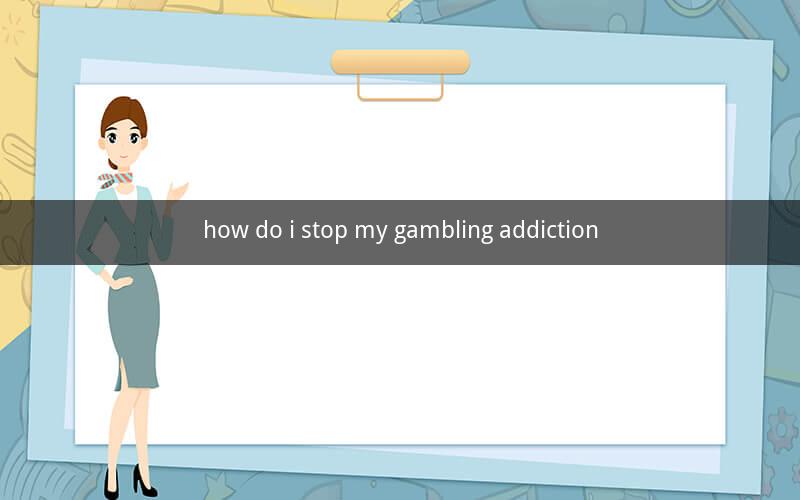
Table of Contents
1. Understanding Gambling Addiction
2. Recognizing the Signs of an Addiction
3. Seeking Professional Help
4. Developing a Support System
5. Strategies to Cope with Cravings
6. Building a New Routine
7. Setting Financial Boundaries
8. Utilizing Self-Help Resources
9. Exploring Therapeutic Alternatives
10. Maintaining Long-Term Sobriety
1. Understanding Gambling Addiction
Gambling addiction, also known as problem gambling, is a chronic, progressive condition characterized by an inability to control or stop gambling despite negative consequences. It affects individuals of all ages, genders, and socioeconomic backgrounds. Understanding the nature of gambling addiction is crucial in addressing and overcoming it.
2. Recognizing the Signs of an Addiction
Identifying the signs of a gambling addiction is the first step towards overcoming it. Common signs include:
- Increased time spent gambling, even when it affects other responsibilities or activities.
- Financial problems due to excessive gambling.
- Feeling a strong urge to gamble, often leading to unsuccessful attempts to stop.
- Using gambling as a way to escape stress or negative emotions.
- Lying or hiding gambling activities from friends and family.
3. Seeking Professional Help
Professional help is essential in treating gambling addiction. Therapists, counselors, and addiction specialists can provide personalized support and strategies for overcoming the addiction. Treatment options include individual therapy, group therapy, and inpatient or outpatient rehabilitation programs.
4. Developing a Support System
A strong support system can significantly aid in recovery. This can include friends, family members, or support groups specifically for individuals with gambling addiction. Sharing experiences and seeking advice from others who have overcome similar challenges can be incredibly beneficial.
5. Strategies to Cope with Cravings
Cravings are a common challenge in overcoming gambling addiction. Here are some strategies to cope with cravings:
- Identify triggers that may lead to cravings and avoid them.
- Practice relaxation techniques such as deep breathing, meditation, or yoga.
- Keep a journal to track cravings and the thoughts or emotions that accompany them.
- Replace gambling activities with healthy hobbies or exercise.
6. Building a New Routine
Creating a new routine is essential in overcoming gambling addiction. This includes:
- Establishing a daily schedule with specific activities and goals.
- Prioritizing responsibilities and commitments.
- Engaging in healthy habits such as exercise, proper nutrition, and adequate sleep.
7. Setting Financial Boundaries
Setting financial boundaries is crucial in preventing relapse. This includes:
- Establishing a budget and sticking to it.
- Avoiding access to gambling sites or locations.
- Seeking financial counseling or support if needed.
8. Utilizing Self-Help Resources
Self-help resources can provide additional support in overcoming gambling addiction. These resources include:
- Books and articles on gambling addiction and recovery.
- Online forums and support groups.
- Apps and tools designed to track gambling activities and manage cravings.
9. Exploring Therapeutic Alternatives
In addition to traditional treatment methods, some individuals may benefit from therapeutic alternatives. These alternatives include:
- Hypnotherapy to address underlying issues that contribute to gambling addiction.
- Mindfulness-based stress reduction (MBSR) to improve emotional regulation.
- Neurofeedback therapy to train the brain to respond differently to gambling cues.
10. Maintaining Long-Term Sobriety
Maintaining long-term sobriety is essential in overcoming gambling addiction. This involves:
- Continuously seeking support from friends, family, and professionals.
- Participating in ongoing therapy or support group meetings.
- Recognizing triggers and developing strategies to cope with them.
Frequently Asked Questions
1. What are the consequences of gambling addiction?
Gambling addiction can lead to financial ruin, strained relationships, job loss, legal problems, and even suicidal thoughts or actions.
2. How can I tell if I have a gambling addiction?
If you find yourself spending increasing amounts of time and money on gambling, experiencing negative consequences due to gambling, and feeling compelled to continue despite these consequences, you may have a gambling addiction.
3. Can I overcome a gambling addiction on my own?
It is possible to overcome a gambling addiction on your own, but seeking professional help and joining a support group can significantly increase your chances of success.
4. What types of therapy are available for gambling addiction?
Therapy for gambling addiction may include individual therapy, group therapy, cognitive-behavioral therapy (CBT), and family therapy.
5. How long does it take to recover from a gambling addiction?
The length of recovery varies for each individual, but many people experience significant improvement within a few months of starting treatment.
6. Can gambling addiction be treated with medication?
While there are no specific medications for treating gambling addiction, some individuals may benefit from medication to address co-occurring mental health conditions such as depression or anxiety.
7. How can I help a loved one with a gambling addiction?
Encourage your loved one to seek professional help, provide emotional support, and offer to help with practical tasks such as managing finances or attending support group meetings.
8. Is there a genetic component to gambling addiction?
Research suggests that there is a genetic component to gambling addiction, making some individuals more susceptible to developing the condition.
9. Can a person ever completely stop gambling?
Many individuals with gambling addiction can achieve long-term sobriety by adopting healthy habits, seeking support, and developing coping strategies.
10. What resources are available for individuals struggling with gambling addiction?
Resources include therapy, support groups, hotlines, self-help resources, and online communities dedicated to gambling addiction recovery.